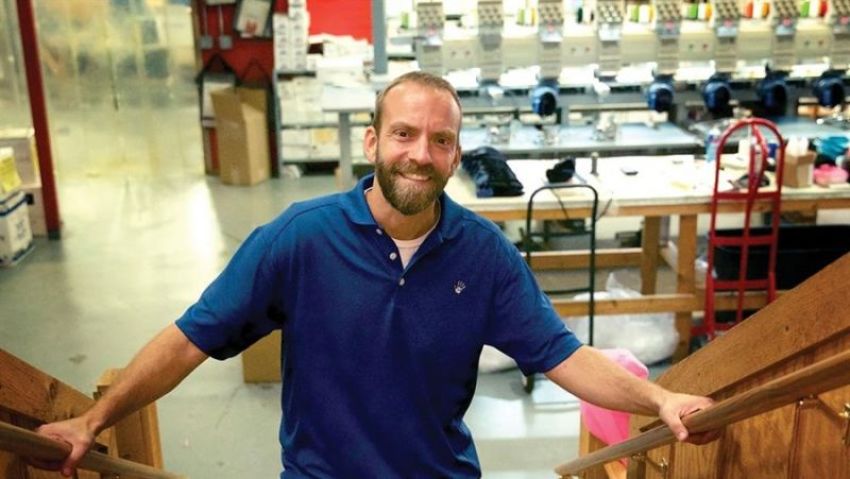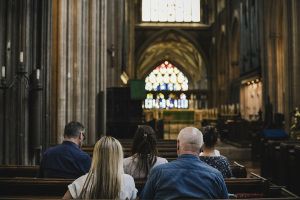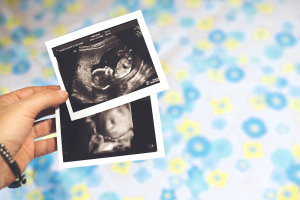Ky. Supreme Court dismisses lawsuit against Christian business that refused to make gay pride shirts

The Kentucky Supreme Court dismissed a lawsuit against a Christian business that refused on religious grounds to make T-shirts for a gay pride event.
In Lexington-Fayette Urban County Human Rights Commission v. Hands on Originals, the state’s highest court ruled unanimously last Thursday that the LGBT group suing the business did not have “statutory standing” to sue the company.
The court noted that the local anti-discrimination ordinance only allowed for an individual complaint of discrimination to be filed, whereas the Gay and Lesbian Services Organization filed the complaint as a group.
“Because GLSO itself was the only plaintiff to file a claim under Section 2-33 with the Commission and it did not purport to name any individual on whose behalf it was bringing the claim, GLSO lacked the requisite statutory standing,” read the court opinion.
“While this result is no doubt disappointing to many interested in this case and its potential outcome, the fact that the wrong party filed the complaint makes the discrimination analysis almost impossible to conduct, including issues related to freedom of expression and religion.”
Justice David Buckingham wrote a separate concurring opinion in which he added that he believed the commission “went beyond its charge of preventing discrimination in public accommodation and instead attempted to compel Hands On to engage in expression with which it disagreed.”
“… while government may validly proscribe conduct, i.e., discrimination in public accommodations, the government may not regulate expression, either by prohibiting disfavored expression or compelling favored expression,” wrote Buckingham.
The Alliance Defending Freedom, which represented Hands On Originals and owner Blaine Adamson, celebrated the Kentucky Supreme Court ruling.
ADF Senior Counsel Jim Campbell, who argued the case on behalf of Adamson, said in a statement last week that the ruling “makes clear that this case never should have happened.”
“For more than seven years, government officials used this case to turn Blaine’s life upside down, even though we told them from the beginning that the lawsuit didn’t comply with the city’s own legal requirements,” stated Campbell.
“The First Amendment protects Blaine’s right to continue serving all people while declining to print messages that violate his faith. Justice David Buckingham recognized this in his concurring opinion, and no member of the court disagreed with that.”
In 2012, the group Gay and Lesbian Services Organization requested that Hands On Originals make T-shirts for a gay pride event in Lexington.
Adamson refused to do the order due to religious objections to homosexuality and a concern that by making the shirts they were effectively endorsing the event.
GLSO sued Hands On Originals and in 2014, the company was found guilty of discrimination by the Lexington-Fayette Urban County Human Rights Commission.
In April 2015, however, Fayette Circuit Court Judge James D. Ishmael Jr. overturned the commission's ruling, concluding that Hands On Originals had a right to refuse the order.
In his decision, Ishmael pointed out that the company had rejected several other orders from diverse groups due to religious objections, including “shirts promoting a strip club, pens promoting a sexually explicit video, and shirts containing a violence related message.”
In May 2017, the Kentucky Court of Appeals ruled 2-1 in favor of Hands On Originals, affirming the lower court’s conclusion that the company could not be forced to make messages that conflicted with their beliefs.
"Nothing in the fairness ordinance prohibits HOO, a private business, from engaging in viewpoint or message censorship," read the appeals court panel decision.
"Thus, although the menu of services HOO provides to the public is accordingly limited, and censors certain points of view, it is the same limited menu HOO offers to every customer and is not, therefore, prohibited by the fairness ordinance."
Judge Jeff Taylor authored a dissent to the appeals court ruling, arguing that HOO violated the local ordinance and thus engaged in discrimination by refusing to print the shirts.
"The facts in this case clearly establish that HOO's conduct, the refusal to print the t-shirts, was based upon gays and lesbians promoting a gay pride festival in Lexington, which violated the Fairness Ordinance," wrote Taylor in 2017.
"Finally, it is important to note that the speech that HOO sought to censor was not obscene or defamatory. There was nothing obnoxious, inflammatory, false, or even pornographic that GLSO wanted to place on their t-shirts which would justify restricting their speech under the First Amendment."



























